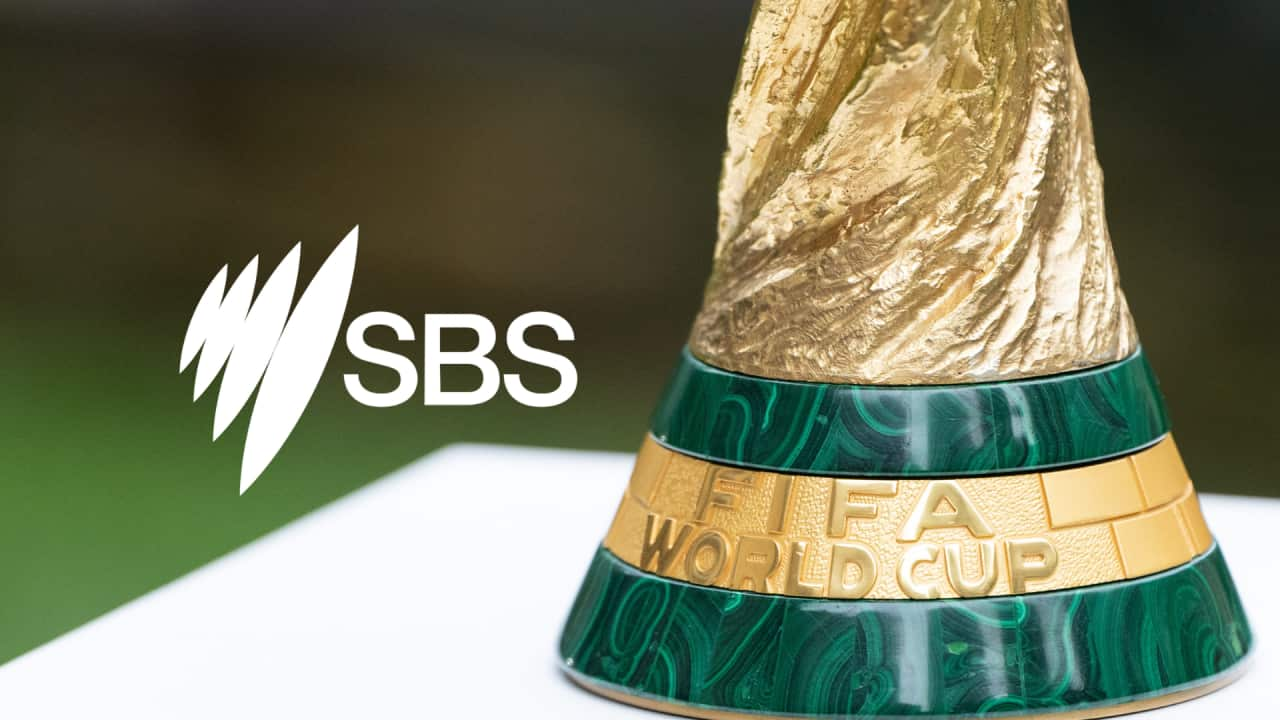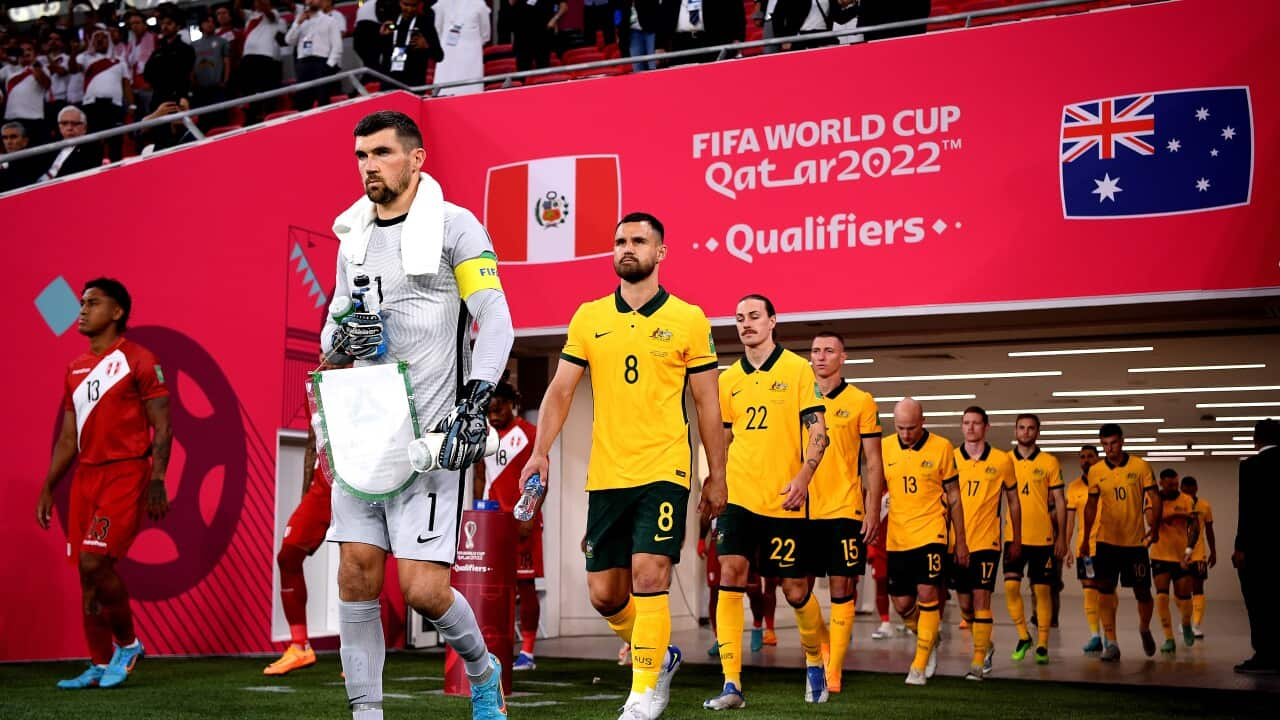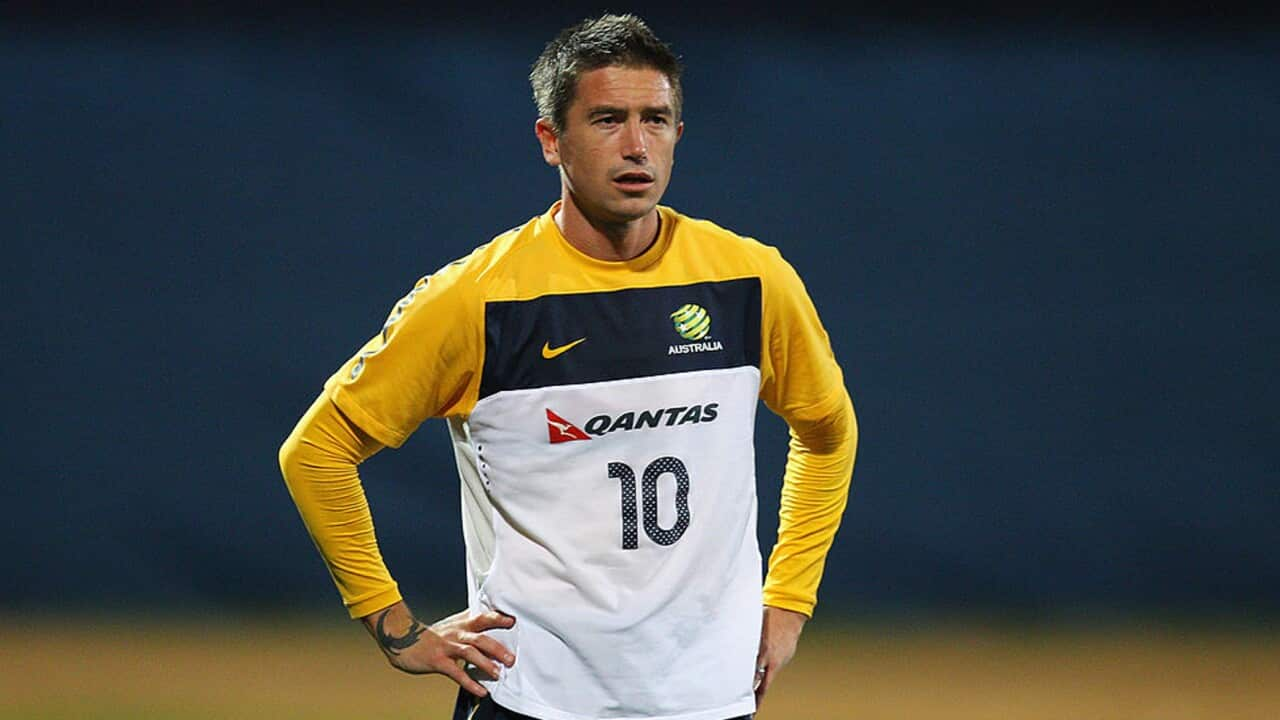Create your to stream all 64 matches of the FIFA World Cup 2022ᵀᴹ live and free any time on your favourite device.
The Socceroos bring a squad representative of a multicultural society, with nine of the 26 athletes born overseas, and a variety of different backgrounds among the squad.
Fronting the press in Qatar were three players – Awer Mabil, Thomas Deng and Garang Kuol - expected to play key roles for Australia at the World Cup, all three were born in Africa before migrating to Australia.
“Australia is probably the best country in the world at being multicultural,” said Mabil, the most experienced of the trio at international level. “That’s shown now on the international stage with many people from different backgrounds.
“You can see it by our saying, ‘many journeys, one jersey’. I think it’s exciting times for the world in general and Australia to see what that means."
“It’s a good reflection on the culture and the diversity that Australia has to offer,” Deng added, “and also it’s filtered in here to the Socceroos.
“Everyone is welcome, no matter what background you are from, and as long as you work hard opportunities will be given. We’re really happy to be here and represent Australia, we’re going to do our country proud.”
In 2018, Deng and Mabil made history as the first two South Sudanese Australians to represent the Socceroos when they made their debut in a 4-0 win over Kuwait.
Deng’s and Mabil’s families had fled war-torn South Sudan in the 1990s and, with both born in Kenya, and a resettlement to Australia as refugees saw them settled in the suburbs of Adelaide.
Kuol’s family fled later from South Sudan to Egypt, where he was born, his family’s migration taking him to Shepparton.
The significance of their paths and the sacrifices made to get them to where they are weren’t lost on the trio, talking about the importance of the moment for both their adopted home country and for children around the world in similar situations to what they had been in their lives.
“Being able to represent different heritages and be that role model to show that hard work gets you somewhere is something I hold closely,” said Kuol. “I just want to prove to kids, especially South Sudanese kids around the world that you can make something of yourself if you just work.”
Deng echoed those words when asked if that added emphasis on representing not just Australia but migrant communities of South Sudanese around the world created extra pressure.
“I don’t think it’s anything to fear, it’s motivation that drives us,” said Deng. “There’s so many kids that are looking up to us, looking at us as role models and we’re just so happy that we’re in this position to show them that your dreams are possible. As long as you work hard for them, they will be given.”
Football in Australia has always been heavily driven by migrant communities, bringing passion for the game from where it’s more established to the more diverse sporting landscape of Australia which is dominated by local codes of football.
More recent migrants of Eastern and Southern Europe heritage and British influence (with a particularly strong Scottish contingent at this World Cup) will be a part of the fabric of the national teams for the foreseeable future, while domestic codes sweep up the progeny of the longer established families.
Football is more responsive to the changing demographics, a truly global game that many arrive in the country ready to play, no matter where they’ve come from. It's a more real picture of Australia, reflective of a changing make-up of society rather than entrenched systems of talent development.
The melding of all those different backgrounds to the one focus of driving Australia to success at this World Cup is something that may not be spoken out loud much, but it’s at the heart of a team that has had to overcome adversity on the path. They played the vast majority of their World Cup qualifiers overseas, going 763 days between matches at home before eventually being the second-last team to qualify for the World Cup after two sudden-death playoff victories.
“There’s a togetherness, especially in our group. Not many people believed in us, but we always believed that we would be here, it was just about finding the way,” said Mabil. “Us Aussies, we love doing it the hard way… I would say grit actually. That’s the DNA, forcing things until we find what we need to find.”
The Socceroos will have to do things the hard way again to fight its way out of a tough group, but it arrives with a team that has overcome tougher challenges to reach where they are now.







